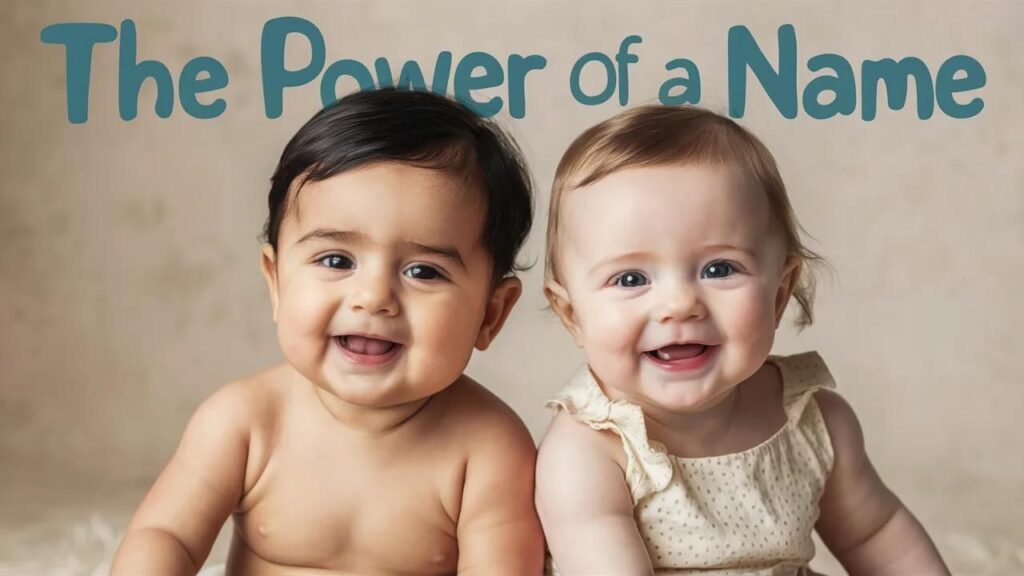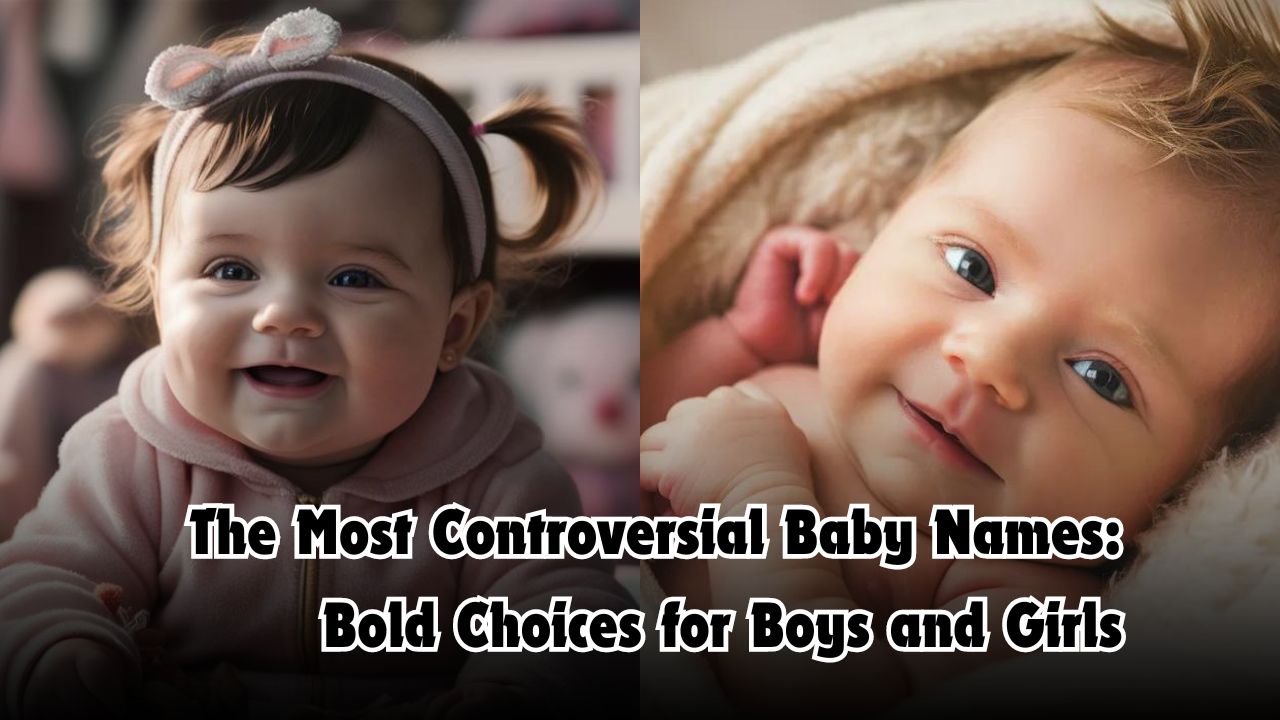Choosing a baby name is a big deal. Parents want a name that is unique, meaningful, and sometimes, even a little bold. But some names stir up more reactions than others. In this article, we’ll explore some of the most controversial baby names for boys and girls. These names have sparked debates, turned heads, and made headlines. If you’re looking for a name that will definitely get people talking, read on.
The Power of a Name

Names are powerful. They shape our identities and influence how we are perceived. A name can honor tradition, reflect cultural heritage, or even make a statement. But what happens when a name crosses the line from unique to controversial?
Controversial names often challenge social norms. They might be too unusual, have strange spellings, or be associated with famous (or infamous) people. Some names are controversial because they are seen as too “out there” or inappropriate.
Controversial Names for Boys

1. Adolf
Adolf is a name that immediately brings to mind Adolf Hitler, the dictator responsible for the atrocities of World War II and the Holocaust. Because of this strong association, very few people choose this name for their children. It’s controversial and carries a heavy historical burden.
2. Lucifer
Lucifer is another highly controversial name. In Christian tradition, Lucifer is often considered the name of Satan before his fall from grace. Naming a child Lucifer can be seen as provocative and might lead to negative reactions from religious communities.
3. Messiah
Naming a child Messiah can be seen as presumptuous or even blasphemous by some. While the name means “anointed” or “savior” in Hebrew, it carries strong religious connotations. Some people feel it is inappropriate to give a child such a lofty name.
4. King
King is a bold choice for a name. It implies power and authority. However, some people see it as pretentious. While it’s gaining popularity, it remains a controversial choice for parents who want their child to stand out.
5. North
North became a well-known name when Kim Kardashian and Kanye West named their daughter North. Although it’s unique and directional, many people found it strange and unconventional. For a boy, North can still be a polarizing choice.
Controversial Names for Girls

1. Nevaeh
Nevaeh, which is “Heaven” spelled backward, has gained popularity over the past two decades. While some see it as a creative and meaningful name, others criticize it as being too contrived and trendy. It often sparks strong opinions.
2. Isis
Isis is an ancient Egyptian goddess associated with health, marriage, and wisdom. However, the name has been tainted by its association with the terrorist group ISIS. This unfortunate connection has made the name highly controversial.
3. Apple
Apple, the name chosen by Gwyneth Paltrow and Chris Martin for their daughter, is another example of a controversial choice. While some admire its uniqueness and simplicity, others find it odd and unsuitable for a person.
4. Blue
Beyoncé and Jay-Z named their daughter Blue Ivy. The name Blue has since sparked a trend but remains controversial. Some see it as a refreshing and modern choice, while others think it’s too unconventional for a child.
5. Stormi
Stormi, the name Kylie Jenner chose for her daughter, has generated mixed reactions. It’s unique and memorable, but some people find it too unusual or even harsh-sounding for a girl’s name.
Also read This: 600+ Unique Mythology Name List and Their Meanings
Cultural and Historical Influences
Controversial names often have strong cultural or historical ties. For instance, names like Adolf and Isis have historical baggage that makes them contentious. On the other hand, names like Messiah or King reflect cultural aspirations and can be seen as too grandiose.
The Role of Celebrities
Celebrities play a significant role in popularizing controversial names. When a celebrity chooses an unusual name for their child, it often makes headlines and sparks discussions. This can lead to a trend, with more parents opting for similar names. However, not everyone approves of these choices, and the names can remain divisive.
The Legal Side of Naming
In some countries, there are laws about what you can and cannot name your child. These laws are meant to protect children from names that might be harmful or embarrassing. For example, in Germany, you cannot name your child something that could negatively impact their well-being. This includes names like Hitler or Satan.
In New Zealand, the government has a list of banned names. This list includes names that are offensive, too long, or resemble official titles. Some examples are “Justice,” “King,” and “Lucifer.” These laws show that while parents have the freedom to choose names, there are limits to ensure the child’s best interest.
Public Reaction and Acceptance
Public reaction to controversial names can vary widely. Some people appreciate the uniqueness and creativity of these names, while others are quick to judge. Social media has amplified these reactions, with people often sharing strong opinions online.
Names that are initially controversial can sometimes become more accepted over time. For example, names like Apple and Blue were initially met with skepticism but have since become more mainstream. However, names with negative historical or cultural associations often remain controversial.
The Impact on the Child
Choosing a controversial name can have a lasting impact on the child. They may face teasing or bullying at school, and their name might affect how they are perceived in social and professional settings. It’s important for parents to consider these potential challenges when choosing a name.
On the flip side, a unique name can also be a source of pride and individuality. Some children grow to love their distinctive names and the attention they bring. It’s a double-edged sword, and the outcome can depend on the child’s personality and environment.
Balancing Uniqueness and Acceptance
Parents often want to choose a name that stands out but is also socially acceptable. Striking this balance can be challenging. One approach is to opt for a unique name with a more conventional middle name. This gives the child options as they grow older.
Another strategy is to research the name’s history and cultural significance. Understanding the background of a name can help parents make an informed decision and anticipate potential reactions.
Conclusion
Choosing a baby name is a deeply personal decision. While some parents opt for traditional and safe choices, others embrace the bold and controversial. Names like Adolf, Lucifer, Nevaeh, and Apple will always spark debates and strong opinions.
Ultimately, the most important thing is that the name feels right for the child and the family. Whether it’s a name that honors heritage, carries a special meaning, or simply resonates with the parents, it should be chosen with love and thoughtfulness.
In a world where names are a fundamental part of our identity, the choice of a name carries weight. Whether you choose a controversial name or a more conventional one, remember that it’s a gift to your child. Choose wisely, and with care.
Also read This: Explore 100+ AI-Generated Names for Your Fantasy World
FAQ
What makes a baby name controversial?
A baby name becomes controversial if it challenges social norms, carries negative historical or cultural associations, or is seen as too unusual or provocative. Controversial names often provoke strong reactions and debates.
Why do some parents choose controversial names?
Parents may choose controversial names for various reasons, including a desire for uniqueness, to honor cultural or personal significance, or to make a statement. Some parents might also be influenced by celebrities or trends.
Are there any legal restrictions on baby names?
Yes, some countries have laws regulating baby names to protect children from names that could be harmful or embarrassing. For example, Germany and New Zealand have specific guidelines and banned names. These laws aim to ensure the child’s well-being.
What are some examples of controversial boy names?
Examples of controversial boy names include Adolf, Lucifer, Messiah, King, and North. These names are often associated with negative historical figures, religious connotations, or are seen as overly grandiose or unconventional.
Can a controversial name affect a child’s life?
Yes, a controversial name can impact a child’s life. They might face teasing or bullying, and their name could influence how they are perceived in social and professional settings. However, a unique name can also be a source of pride and individuality.
How do celebrities influence baby name trends?
Celebrities often influence baby name trends by choosing unique or controversial names for their children. These names gain media attention and can become more popular or widely discussed, leading other parents to consider similar choices.
How can parents balance uniqueness and social acceptance in naming their child?
Parents can balance uniqueness and social acceptance by choosing a unique first name paired with a more conventional middle name. Researching the name’s history and cultural significance can also help parents make an informed decision and anticipate potential reactions.
Will a controversial name always remain controversial?
Not necessarily. Some controversial names can become more accepted over time, especially if they become more common or lose their negative associations. However, names with strong historical or cultural baggage might remain contentious.
What should parents consider when choosing a controversial name?
Parents should consider the potential impact on their child’s social experiences, the name’s historical and cultural significance, and public perception. It’s important to choose a name that feels right for the child and the family, balancing individuality with the potential challenges.
Are there any benefits to choosing a controversial name?
A controversial name can be a source of uniqueness and individuality. It can make a child stand out and may become a point of pride. Additionally, it can reflect the parents’ values, heritage, or personal preferences in a meaningful way.
What are some less controversial alternatives to these names?
Less controversial alternatives might include variations or names with similar meanings but without the negative connotations. For example, instead of Adolf, consider Adolphus. Instead of Lucifer, consider Lucian. Instead of Isis, consider Iris. Choosing names with positive associations can also be a good compromise.

